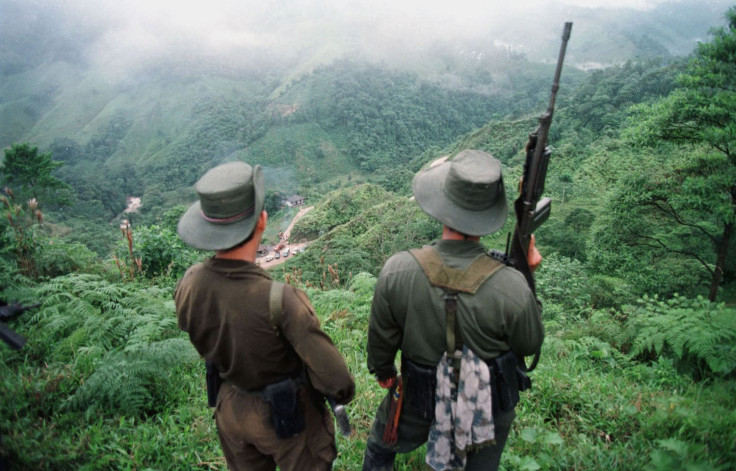Colombia To Sign Peace With Marxist Rebels, Ending 52-Year War

Colombian President Juan Manuel Santos and Marxist rebel leader Timochenko will sign a deal on Monday ending a half-century war that killed a quarter of a million people, stymied the economy and made Colombia a byword for violence.
After four years of negotiations in Havana, Santos, 65, and Timochenko, a nom de guerre for the 57-year-old revolutionary, will shake hands for the first time on Colombian soil in front of world leaders.
Their deal to end Latin America's longest-running conflict will turn the FARC guerrilla group into a political party fighting at the ballot box instead of the battlefield it has occupied since 1964.
Some 2,500 foreign and local dignitaries will attend the ceremony in the colonial city of Cartagena, where huge billboards call on Colombians to accept the peace plan.
"I can't believe this day has finally come, peace is coming to Colombia," said Juan Gamarra, 43, who sells jewelry in the walled city.
Guests include U.N. head Ban Ki-moon, Cuban President Raul Castro, U.S. Secretary of State John Kerry and victims of the conflict.
Though there is widespread relief at an end to the bloodshed and kidnappings of past decades, the deal has caused divisions in Latin America's fourth-biggest economy.
Some, including influential former president Alvaro Uribe, are angered the accord allows rebels to enter congress without serving any jail time.
The agreement must be ratified during an Oct. 2 plebiscite, but polls show it will pass easily.
The Revolutionary Armed Forces of Colombia (FARC) - which began as a peasant revolt, became big players in the cocaine trade and had as many as 20,000 fighters at their strongest - will hand over weapons to the United Nations within 180 days.
"It's such an important day - now we can fight politically, without blood, without war," said Duvier, a 25-year-old rebel attending a FARC congress last week in the southern Yari Plains.
Colombians are nervous over how the remaining 7,000 rebels will integrate into society, but most are optimistic peace will bring more positives than problems.
Colombia's economy has performed well relative to neighbors in recent years, and peace should reduce security costs and open new areas for mining and oil companies. But crime gangs could try to fill the void and landmines hinder development.
With peace behind him, Santos, the scion of a wealthy Bogota family, will hope to use the political capital to push his economic agenda, especially tax reforms to compensate for a drop in oil income caused by a fall in oil prices.
© Copyright Thomson Reuters 2024. All rights reserved.











